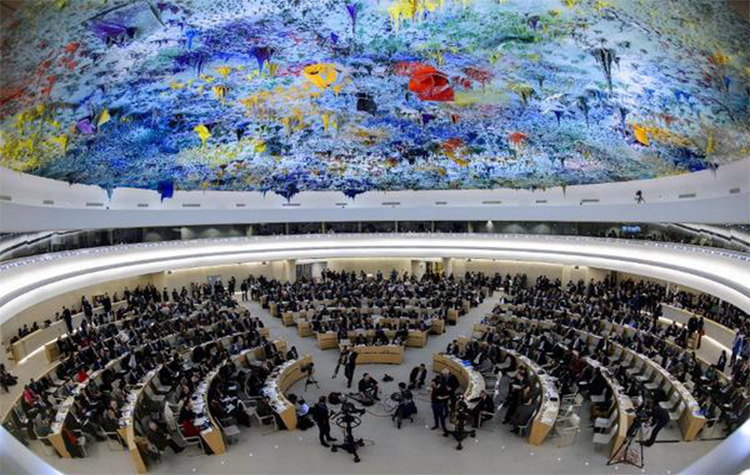41st Session to the UN Human Rights Council
Joint Oral Statement – Item 3: Interactive Dialogue with the Special Rapporteur on freedom of opinion and expression
Delivered by Andrew Smith
Mr President,
We agree with the Special Rapporteur on freedom of expression that the significant and adverse impacts of surveillance technologies on human rights, and the absence of safeguards to prevent against or mitigate them, requires an immediate moratorium on their global sale and transfer.
That the targeting by governments of civil society activists, journalists, and dissenting voices has become a for-profit industry, that operates in secret and largely evades regulation, should alarm this Council.
Surveillance technologies, specifically Pegasus spyware marketed by the NSO group, has allowed the Government of Saudi Arabia to extend its authoritarian grip beyond its territorial borders, including to target the associate of Washington Post journalist Jamal Khashoggi.
The Mexican Government’s targeting of journalists, civil society and victims of human rights abuses, using Pegasus spyware, was only uncovered following civil society investigations. Credible, independent investigations have yet to be initiated, and the nature of the relationship between the NSO group and the government has not been clarified – this must be addressed.
In the Philippines, we are disturbed by the reported use of similar surveillance techniques – and the harassment of anyone who has spoken out against human rights violations committed in the name of the so-called “war on drugs”, including the media, human rights defenders, and even UN special procedures. We call on States to support the resolution on the Philippines at this session.
Mr President,
Uncovering privacy violations, and seeking redress for their impact on freedom of expression, is notoriously difficult given the secrecy surrounding cooperation between surveillance technology companies and States.
It is clear that States’ human rights obligations require them to bring their national laws on surveillance into compliance with international human rights law, ensure public mechanisms for approval and oversight of the purchase and use of surveillance technologies, and to provide tools of redress for privacy violations.
We agree with the Special Rapporteur that companies’ access to the market must be conditional on evidence of strong compliance with the Ruggie Principles. Compliance should not be optional or voluntary, or left to self-regulation to achieve.
Lastly, we support the call for a special procedures’ “task force” to monitor and report on cases where the use of surveillance technologies has enabled human rights violations.
In September, this Council will consider a resolution on privacy in the digital age: it is a crucial opportunity for States to commit to the recommendations of this report.
***
For a PDF version of this statement, click here.



